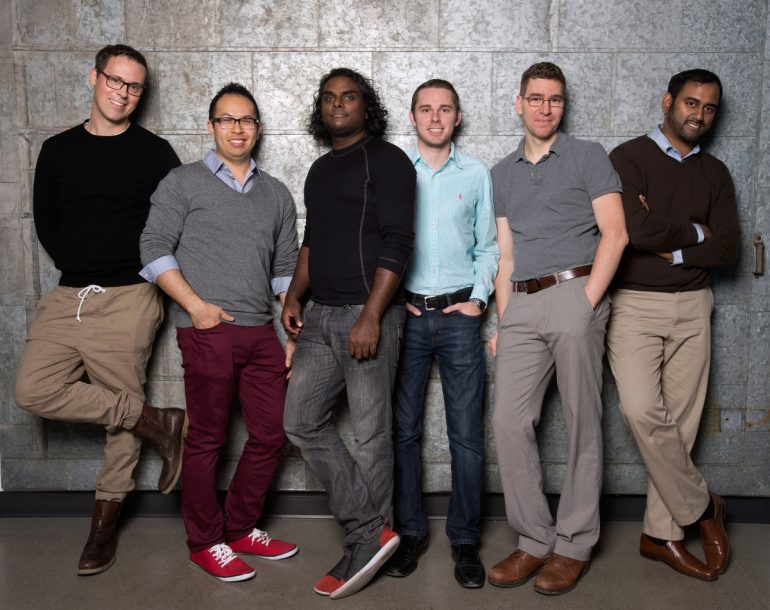At a young age, Travis Ratnam felt that the intelligence of his father skipped a generation. When Ratnam’s father was 13, he taught himself math and became so good at it that he started tutoring people in his town — including the math teachers’ children. In contrast, at a young age, Ratnam found out he was one of the poorest performing students in his class.
Luckily, as his father had experience teaching math after all those years, Ratnam was able to go from being at the bottom of his class to receiving the Governor General Academic Medal in high school. “I thought at that point, maybe I’m not stupid. It took a while, but that left an impression,” Ratnam said. “I had the conviction that if I could do this, there is a pathway for most kids to achieve what I achieved.”
Since that experience, Ratnam has been dedicated to helping students learn more effectively starting at the source: teachers. Ratnam is the co-founder of Knowledgehook, a Waterloo-based software company that analyzes the academic performance of math students in real time. Using the gamified platform, teachers get access to questions designed to fit their curriculum that all students can participate in from a web-enabled device. The platform is meant to be interactive as students can see how the entire class answered.
While a lot of technology today is focused on automating tasks, possible at the expense of human jobs, Knowledgehook instead focuses on building on the skills of teachers already in the school system. Rather than relying solely on technology to teach children more effectively, Ratnam said that it leverages technology to help teachers figure out why students are struggling; with Knowledgehook, the approach isn’t just to understand that a student is struggling to calculate the area of a square, but why.

Interestingly, this isn’t Ratnam’s first experience with creating a means for effectively communicating; Ratnam met his co-founder, Lambo Jayapalan, when they were working on a nonprofit in Sri Lanka and Indonesia that helped other nonprofits assess logistical challenges in affected areas. Their nonprofit allowed students to use calling cards to get feedback from citizens, who then generated reports that they passed on to not for profits and governments. The reports helped evaluate what pressing needs affected certain regions.
“When we built the first version of Knowledgehook, I was helping kids with gamification and educational supports, and breaking down the supports into smaller bite-sized goals that were more achievable for kids. We did notice that there were things that teachers could do in the classroom,” Ratnam said. “School boards are spending a lot of money investing in training teachers to do a specific thing that tech couldn’t quite do as well.”
It’s likely that the young Ratnam wouldn’t believe where he is today; his business has grown from working out of Communitech’s Rev and participating in the Accelerator Centres’ AC JumpStart programs, to being one of two Canadian startups to make it to Google Demo Day, where the team pitched in front of investors and entrepreneurs in Silicon Valley. Knowledgehook ended up receiving Google’s Game Changer Award.
Since September 2015, 12 Ontario school boards have been reviewing the insights that Knowledgehook provides and how it helps teachers adapt their lessons. “That aspect perhaps is reminiscent of that human learning experience I had with my dad,” Ratnam said.

